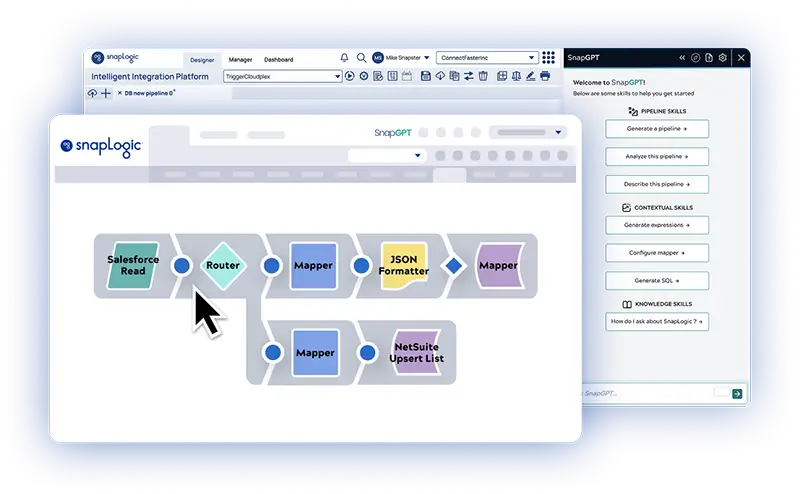Why Are APIs Critical for an Enterprise’s Success?
By Karen He
As the Covid-19 pandemic spread throughout the world in March, consumers were told to hunker down at home with two weeks’ worth of essential supplies. 95% of businesses including retail stores, restaurants, and other essential businesses were suddenly forced to close or operate completely differently. They experienced the ‘adapt-or-die’ moment first-hand as they scrambled to change their business processes overnight to continue doing business with their customers, in the comfort of their homes.
In fact, companies with a robust digital presence prior to the pandemic were more responsive and better able to meet increased traffic/order spikes. Whole Foods, for example, offered online shopping and grocery delivery services thanks to its parent company, Amazon. Although they fell short in grocery delivery slots due to unforeseen order spikes, Whole Foods already had their backend processes set up to serve their customers. They focused on hiring more shoppers to meet the new delivery demand.
Unlike Whole Foods, Walmart, Costco, and other longtime grocery chains leaned on their Instacart partnership to provide a delivery option for their customers. Even though Walmart announced its paid subscription, Walmart+, the grocery chain still partners with Instacart to ramp up its digital presence, gain new customers through Instacart’s customer base, and directly compete with Amazon and Whole Foods.
Many businesses took the ‘new normal’ head-on by implementing a different operating model that improved customer experience for good and these changes are likely to stick in the long-run. Regardless of pandemic or not, companies that embrace growth by building out their digital ecosystem are more prepared for unanticipated situations.
APIs (application programming interfaces) are imperative in making digital ecosystems possible and are more critical than ever before for companies who desire to grow their business. As microservices, APIs serve as building blocks that help you create new and update existing products and services, and expand your business with your partners and customers.
Contactless food ordering and delivery via UberEats, for example, was still a novelty prior to the pandemic. Now even small cafes with limited technology capabilities can continue doing business. Customers were quick to adopt contactless ordering, watch their UberEats driver on a map, and get food delivered to their doorsteps, all directly through a mobile application. This is the new customer experience in today’s ‘new-normal’.
If you are considering adding an API strategy to build your digital ecosystem, meet your corporate objectives, and stay ahead of the competition, read on to learn how APIs can help create value for your business:
1) APIs spur innovation and collaboration
Companies with an API program already in place are more likely to speed up their innovations than those who don’t have one. An effective API program includes an API catalog with APIs that are open for developers across the company to discover, collaborate, update, and use. Instead of building APIs from scratch, developers can self-serve, re-use, and improve the existing APIs to meet the new or evolving business demands. Whole Foods, for example, may be using updated APIs to build out their online grocery delivery capabilities that Amazon developers may have built previously (ie. Amazon Fresh or Prime Now).
2) APIs support legacy modernization
Like building blocks, APIs support companies who undertake digital transformation, or modernize their existing back-end systems and processes. These initiatives can be overwhelming because the existing companies’ technology ecosystem has complex enterprise systems or intertwined integration workflows.
Companies, however, can use APIs from their partners to build out their digital ecosystem in phases or according to business priorities without disrupting business processes. While digital transformation or legacy modernization may be a multi-year journey, APIs help ease the transition. APIs can be used to modernize access to older, legacy systems without any required changes made to those systems. It allows digital and mobile app developers to leverage the capabilities and data within those legacy systems without needing to be experts in those systems, nor even needing to get IT involved. This helps bring legacy systems along the digital transformation journey, as well as affording time to pay down the technical debt associated with those legacy systems at the right time, without impacting business outcomes which depend upon them.
APIs provide a critical approach to democratize access to systems (old and new) and de-couple in such a way that the underlying systems are free to change or be completely replaced, without detrimental impact to the outcomes dependent upon them. This level of fungibility can only be achieved via APIs.
3) APIs create value via third parties
Companies that are not familiar with creating an API strategy or program don’t need to develop their own APIs in order to build out their digital ecosystem. Instead, companies can use public APIs or APIs made available by their partner to develop products and services to meet their business needs. Walmart, for example, leans on Instacart’s platform (APIs) to fulfill online grocery deliveries for their customers and acquire new customers while they expand their digital channel and logistics.
Having your business become a platform, allowing you to expose your core capabilities as APIs, allows you to participate in the API economy, finding new routes to market, and the ability to embrace new customers through new channels, previously not possible with a traditional, non-API based enterprise. The same is true internally.
Once you have defined your business strategy, you’ll need to develop an API program to support your business strategy. Start a small, low stakes pilot by building and testing your first APIs with a small team. You can start rolling out these APIs to other departments within your company as you see more API adoption. You will be on your way to creating and expanding your digital ecosystem.
Protect and manage APIs
As you publish APIs throughout your company and share them with partners, you will need to protect and manage them. Some critical capabilities that allow you to protect and manage APIs include rate throttling, tiers and limits, versioning, user authentication, payload threat, protection policies, and more. With rate throttling, you can set permissions and limits on how many times an API is called. Each team and partner will adopt your APIs at different times and will use a different version of the APIs. It is critical that you version control your APIs so that products and services built with those APIs are not disrupted and ensure a seamless user experience. Protecting your APIs by only publishing and giving access to authorized users is also important, so your APIs aren’t exposed to attackers or threats.
Measure your API engagement
Improve your API strategy by understanding how teams and partners are using your APIs. Through a regular review process to measure API engagement, capture, and alert on error codes, thresholds, and more, you are better able to gauge which APIs are widely adopted and how often they are used. As a result, you can infer which teams and business units are using your APIs to innovate products and services. You can lean on these insights to update those APIs to increase usage and retire APIs that aren’t used widely. By understanding API engagement, you can optimize existing APIs or create new ones through team collaboration.
APIs are vital in enabling companies to build a digital ecosystem that expands to their partners and customers. Like Whole Foods and Walmart, companies that align their business strategy with an effective API strategy and program are more equipped to respond to an unforeseen situation.













